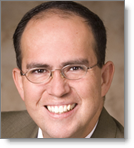This question is from the client of one of our coaches… Perry Newman asked me to share it amongst the group to see what everyone thought. Perry’s client, Grant, asks:
My question for you was about LinkedIn and the “letting recruiters knows your open” feature. Does this put anything on your profile for your connections to see? I saw it said we try to keep it private, but cannot guarantee. I have seen profiles in the past where it says “open to new opportunities”… for obvious reasons at this point I don’t want that on there for my colleagues to see and because I deal with some of our biggest customers day in day out whom I have connections with this could cause concern on their side too (if they even see it).
This is a really good, and very important, question. Since I wrote a book on LinkedIn, and have done a gabillion trainings on LinkedIn (the most current is in the JibberJobber Video Library), I’m going to chime in.

Here’s the bottom line: Assume that anything you ever do, or put, on any website, including social media, and LinkedIn, is visible to anyone. Period.
Seriously, there are no guarantees of privacy. Want multiple extreme examples? There are too many private pictures that people have shared on Snapchat (that website who’s promise was to not allow anyone to share or keep pictures) online. How is it that Snapchat has implied a promise that they would keep these private things private, but they are out in the public?
There is no guarantee, ever, of privacy or security online. Ever.
Even the biggest companies with the best security teams have had problems with privacy and security. Think Equifax (oops!), and many others (click the orange slideshow button to be depressed about this whole topic).
Here’s my bottom line: do not trust that any company will or can protect your private stuff, including your private status of looking for a job. No matter what LinkedIn says (you already said they cannot guarantee it, so there’s your answer from them), you should keep your private stuff offline if you are worried that it might get out.
Let’s assume, though, that they guaranteed it. Imagine the following scenario: Your best friend sees your status as being open to a new gig, and he immediately screenshots it and emails it to his local recruiter contacts to “help” you. So much for privacy.
No site can plug the loophole that security professionals call “social engineering.”

As the LinkedIn fine print indicates, privacy can’t be guaranteed. My advice would be to refrain from turning the signal on. More importantly, make certain your LinkedIn profile is up-to-date and separates you from your competition through your work experience, recommendations, and all avenues available through LinkedIn. A good recruiter will search for all qualified candidates without regard to whether the “open for opportunities” switch is on. If you are the right person for the specific job, you will be found, and the recruiter will reach out to you. At that point, you should stress the importance of maintaining confidentiality as long as possible.

SHARING YOUR CAREER INTERESTS WITH RECRUITERS:
The feature merely prompts the software to allow your profile to show up in relevant searches run only by those with LinkedIn’s Premium Talent Solution Subscription. This is an expensive subscription, running between $1200 – $12,000 annually, per person, which pretty much means only serious recruiters are involved.
NO, enabling LinkedIn’s recruiter alert does not flag your profile in any visible way.
This link gives step-by-step instructions on how to find, enable, and use the “share career interests with recruiters” prompt:
https://www.linkedin.com/help/linkedin/answer/67405?lang=en#!
This link shows exactly what will be shared with recruiters:
https://www.linkedin.com/help/linkedin/answer/76792
MORE ON THE GUARANTEE (or not) of PRIVACY:
On the privacy issue, what LinkedIn seems to be saying is, ‘although the software is designed NOT to allow your profile to appear in searches run by a representative of your company, we can’t guarantee it.’
This link explains how LinkedIn protects your privacy with the recruiter alert enabled:
https://www.linkedin.com/help/linkedin/answer/76791
I believe this is a reasonable caveat on Linkedin’s part. The software has millions of lines of code handling millions of searches a day. I doubt anyone would guarantee there never will be a snafu.
Should this stop you from using the feature? It’s your call but my opinion is absolutely not. I know the feature can work well.
FLAGGED PROFILES:
When you see “open to new opportunities,” or something similar on a profile, the profile owner did this themselves. LinkedIn used to offer a ”Job Seeker Badge,” though it has been discontinued.
MORE ON LINKEDIN JOB SEEKER HELP:
This video shows how LinkedIn “Premium Job Seeker” works: https://premium.linkedin.com/jobsearch
This link shows how to find LinkedIn Groups that will help with your job search: https://www.linkedin.com/help/linkedin/answer/186

Dear Grant,
I would suggest you make sure your LinkedIn profile is spot on. Be sure you use all the space available in the summary section, and use industry keywords several times through your profile. It is also important to have recommendations and endorsements. When updating your profile be sure to turn off your notification button, once you are done then turn it back on.
The next step is to contribute, share or like something daily. This increases your opportunities to be found quicker.
The most important thing to remember, whether actively or passively looking for a job, you are in the driver’s seat don’t assume others will find you. LinkedIn as a research tool, so make the most of it. Once you have identified recruiters connect with them outside of LinkedIn either by calling or emailing them and tell them you are conducting a confidential job search.
If they only way to connect is via LinkedIn, send them an invitation to connect but don’t connect with them yet. Inform them about your discreet job search and include your email so you can connect offline, then send your resume and take it from there.
Remember recruiters are working on many positions they need to fill, so don’t feel bad about following up with them. Also, be sure to keep a list of the recruiters, with follow-up dates. Once again, this is your job search, so don’t be shy about touching base.
Wishing you the very best!
Thanks to the coaches who chimed in! To see past Ask the Coach questions and responses, click here!
